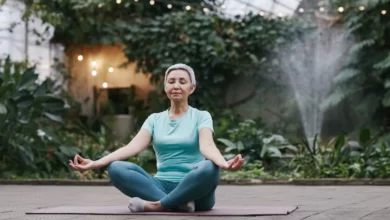In the fast-paced world we live in, taking care of ourselves often takes a backseat to our busy schedules and responsibilities. However, prioritizing self-care is essential for maintaining a healthy mind, body, and spirit. The art of self-care goes beyond the occasional spa day; it’s about nurturing your inner wellness through intentional practices that rejuvenate and empower you. In this comprehensive guide, we’ll explore a range of self-care practices that can help you achieve balance, reduce stress, and cultivate a deeper connection with yourself.
1. Understanding Self-Care
Self-care is a holistic approach to well-being that encompasses physical, emotional, and mental health. It involves consciously nurturing yourself to maintain balance and prevent burnout. Central to self-care is self-compassion, treating yourself with the same kindness you would offer to a friend. Dispel the notion that self-care is selfish – it’s an essential investment in your overall quality of life.
2. Prioritizing Physical Well-Being
Physical well-being forms the foundation of self-care. Nourish your body with a balanced diet rich in nutrients. Regular exercise not only keeps your body strong but also releases endorphins, boosting your mood. Quality sleep is vital for physical and mental restoration, helping you face each day with vitality.
3. Nurturing Emotional Health
Emotional health is intrinsically linked to self-care. Develop emotional intelligence to understand and manage your feelings effectively. Mindfulness and meditation practices enable you to stay present and regulate your emotions. Journaling provides a safe space to explore your thoughts and feelings, promoting emotional release and self-discovery.
4. Cultivating Mental Clarity
The constant hustle of modern life can lead to mental clutter. Stress management techniques such as deep breathing, yoga, and progressive muscle relaxation help you find calm amidst chaos. Set boundaries to protect your mental space and create a sense of control. Engaging in creative activities – whether painting, writing, or playing an instrument – stimulates your mind and provides a mental outlet.
5. Creating a Supportive Environment
Your physical environment has a profound impact on your well-being. Declutter and organize your living spaces to reduce stress and enhance focus. Surround yourself with positive influences – people who uplift and support you. Designate a serene space in your home where you can unwind, practice meditation, or engage in self-reflection.
6. The Power of Connection
Human connection is a cornerstone of self-care. Nurture relationships that bring positivity and authenticity into your life. Balancing social interactions with moments of solitude ensures that you have time for introspection and self-renewal. When needed, don’t hesitate to seek professional support from therapists or counselors.
7. Unplugging and Digital Detox
Constant exposure to screens can lead to digital fatigue. Incorporate intentional breaks from technology to foster digital mindfulness. Unplugging allows you to reconnect with the physical world and engage in activities that don’t require a screen. Rediscover the joy of reading a book, taking a leisurely walk, or engaging in face-to-face conversations.
8. Embracing Nature and the Outdoors
Nature has a remarkable ability to soothe the soul. Spend time outdoors to connect with the natural world and absorb its healing energy. Mindful walks in parks or hikes in nature reserves provide opportunities for grounding and reflection. Engaging in outdoor meditation deepens your connection to both yourself and the environment.
9. Indulging in Creative Expression
Creative expression is a powerful form of self-care. Engaging in artistic endeavors – whether it’s painting, writing, photography, or crafting – allows you to channel your emotions and thoughts into tangible creations. Creativity fosters a sense of accomplishment, joy, and self-discovery.
10. Self-Care Rituals and Routines
Establishing self-care rituals and routines creates a sense of structure and consistency. Design a routine that aligns with your preferences and needs. Incorporate morning and evening rituals that promote relaxation and self-reflection, such as meditation, gratitude journaling, or gentle stretching.
11. Gratitude and Positive Affirmations
Cultivating gratitude is a powerful way to shift your perspective towards positivity. Begin or end your day by acknowledging the things you’re grateful for. Positive affirmations reinforce self-worth and empower you to overcome self-doubt. Embrace a mindset of abundance and positivity, fostering a sense of inner contentment.
12. Balancing Work and Leisure
Maintaining a healthy work-life balance is integral to self-care. Prioritize leisure activities that bring you joy and relaxation. Engage in hobbies that ignite your passions and provide a sense of accomplishment. Be mindful of burnout by setting boundaries around work commitments and allocating time for self-renewal.
13. Empowering Self-Compassion
Self-compassion is at the core of self-care. Treat yourself with kindness, especially during times of difficulty. Release the need for perfectionism and embrace your mistakes as opportunities for growth. Through self-compassion, you develop resilience and a nurturing relationship with yourself.
Conclusion:
The art of self-care is a profound journey of self-discovery and well-being. By weaving these practices into your daily life, you create a foundation of inner strength, balance, and resilience. Remember that self-care is a continuous process, requiring self-awareness, dedication, and a commitment to nurturing your physical, emotional, and mental health. As you embrace the art of self-care, you embark on a transformative path towards a more vibrant, fulfilled, and harmonious life.









